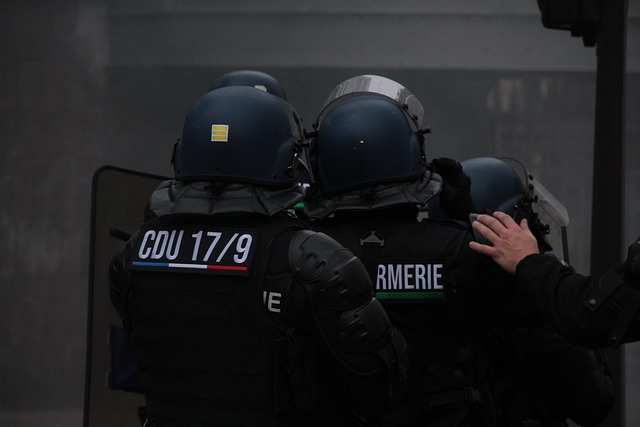The choice between a plea bargain and trial in criminal law, especially for antitrust cases, is critical. Plea bargains provide quicker resolutions and reduced penalties but may damage reputation. Trials offer thorough exploration of facts, potential charge dismissal, public scrutiny, and transparency yet are costly, time-consuming, and outcome-uncertain. Balancing benefits versus drawbacks is crucial to decide which strategy best serves the defendant's interests in complex legal scenarios.
“Antitrust violation cases pose unique challenges for both defendants and prosecutors. This article delves into the intricate world of legal strategies, offering insights into understanding these cases from a lawyer’s perspective. We explore key aspects such as plea bargain strategies for accused companies, the prosecutor’s role in negotiating deals, and the advantages/disadvantages of trial versus plea bargains. Additionally, we analyze the profound impact of plea bargains on corporate governance within the antitrust landscape.”
- Understanding Antitrust Violation Cases: A Legal Perspective
- Plea Bargain Strategies for Defendants Facing Charges
- The Role of Prosecutors in Negotiating Plea Deals
- Advantages and Disadvantages of Going to Trial
- Impact of Plea Bargains on Corporate Governance
Understanding Antitrust Violation Cases: A Legal Perspective

In the realm of antitrust law, understanding violation cases involves delving into complex legal strategies and outcomes. Antitrust violations, such as price-fixing or market division, can significantly disrupt competitive markets. When faced with accusations, a crucial decision for defendants is whether to accept a plea bargain or proceed with a jury trial. The choice between these two paths has profound implications, impacting not just the financial burden but also the potential outcome and public perception.
A plea bargain offers a more certain, albeit often less favorable, resolution. For his clients, it means acknowledging guilt and accepting consequences in exchange for reduced charges or sentencing. This route can be particularly appealing when the evidence is overwhelming. In contrast, jury trials present an opportunity for a full defense, where clients can argue their innocence or mitigate culpability. Jury trials offer the chance for achieving extraordinary results, but they come with higher risks and costs, as the outcome rests on the decision of twelve individuals rather than a judge.
Plea Bargain Strategies for Defendants Facing Charges

When defendants face antitrust violation charges, one strategy they often consider is a plea bargain. In criminal law, the choice between going to trial and accepting a plea bargain is significant. A plea bargain can offer several advantages to defendants, especially those accused of complex white-collar and economic crimes. By pleading guilty or agreeing to a lesser charge, defendants may receive reduced penalties, including shorter sentences or less severe fines, which can be particularly appealing for those facing potentially devastating consequences.
This approach allows for a quicker resolution compared to navigating the lengthy and intricate processes involved in a full trial. Across the country, many lawyers specializing in these matters advocate for plea bargains as a strategic move for their clients. It’s important to note that these negotiations require careful consideration of various factors, including the strength of the evidence against the defendant and potential sentencing outcomes, ensuring the best possible outcome in what can be a challenging legal landscape.
The Role of Prosecutors in Negotiating Plea Deals

In many antitrust violation cases, prosecutors play a pivotal role in negotiating plea deals with corporate defendants. This process offers a significant contrast to the traditional jury trials often associated with criminal law. Instead of risking a lengthy and costly trial, companies may choose to enter into plea agreements, which can provide several advantages. For instance, a successful plea bargain might result in a complete dismissal of all charges, offering the company a chance to avoid substantial fines and potential reputational damage.
Prosecutors act as intermediaries, presenting evidence and arguments to reach mutually beneficial agreements. This strategy allows them to allocate resources more efficiently while ensuring the company accepts responsibility for its actions. In exchange for a guilty plea, prosecutors may offer reduced penalties or recommend leniency to judges. Such negotiations require skill and an understanding of both criminal law and business practices, especially in complex antitrust scenarios.
Advantages and Disadvantages of Going to Trial

Going to trial offers several advantages for both corporate and individual clients facing antitrust violation charges. Firstly, a full-scale trial allows for extensive exploration of facts and legal arguments, enabling a judge or jury to understand complex market dynamics and make an informed decision. This process can be crucial in achieving extraordinary results, such as the complete dismissal of all charges, especially when the evidence strongly supports the defendant’s position. Moreover, trials provide greater public scrutiny and transparency compared to other outcomes, ensuring accountability for any alleged misconduct.
However, there are also significant disadvantages to consider. Trials are often lengthy and expensive, demanding substantial resources from both the defendant and the legal team. The process can be emotionally taxing for clients, especially when dealing with sensitive business matters. Additionally, the outcome is never guaranteed; even with strong defenses, the risk of an unfavorable verdict exists. Therefore, a strategic assessment of the potential benefits versus costs is essential before deciding between a plea bargain or trial in criminal law.
Impact of Plea Bargains on Corporate Governance

In corporate governance, the choice between a plea bargain and going to trial in criminal law cases significantly influences an organization’s future trajectory. Plea bargains, which involve a company admitting guilt to avoid a more severe punishment, can lead to swift resolutions. This approach may seem appealing as it allows businesses to quickly address antitrust violation concerns, mitigate financial penalties, and restore public trust. However, accepting a plea bargain might also signal a lack of accountability, potentially damaging a corporation’s reputation for integrity.
On the other hand, choosing to fight a trial can be a strategic move, particularly when challenging complex antitrust allegations. This path enables companies to defend their actions, clear their name, and demonstrate their commitment to ethical practices. While trials are time-consuming and costly, an unprecedented track record of achieving extraordinary results in antitrust cases could strengthen a corporation’s position in future negotiations and regulatory interactions.
In conclusion, the decision between a plea bargain or trial in antitrust violation cases is a complex legal strategy. Understanding the nuances of these options is essential for both defendants and prosecutors. While plea bargains offer benefits like reduced sentencing and swift resolution, going to trial provides the chance for a complete defense and potential damage to the reputation of the accused. Navigating this Plea Bargain Vs Trial in criminal law demands careful consideration of corporate governance, legal precedents, and the specific circumstances of each case.






